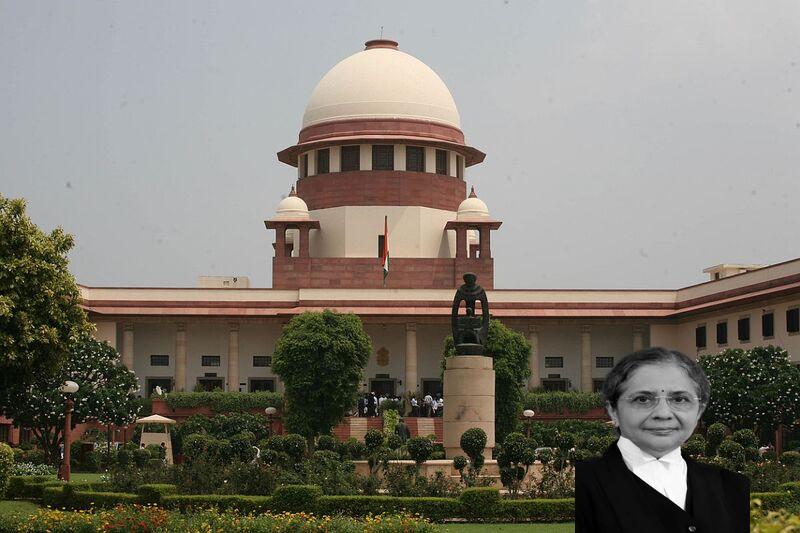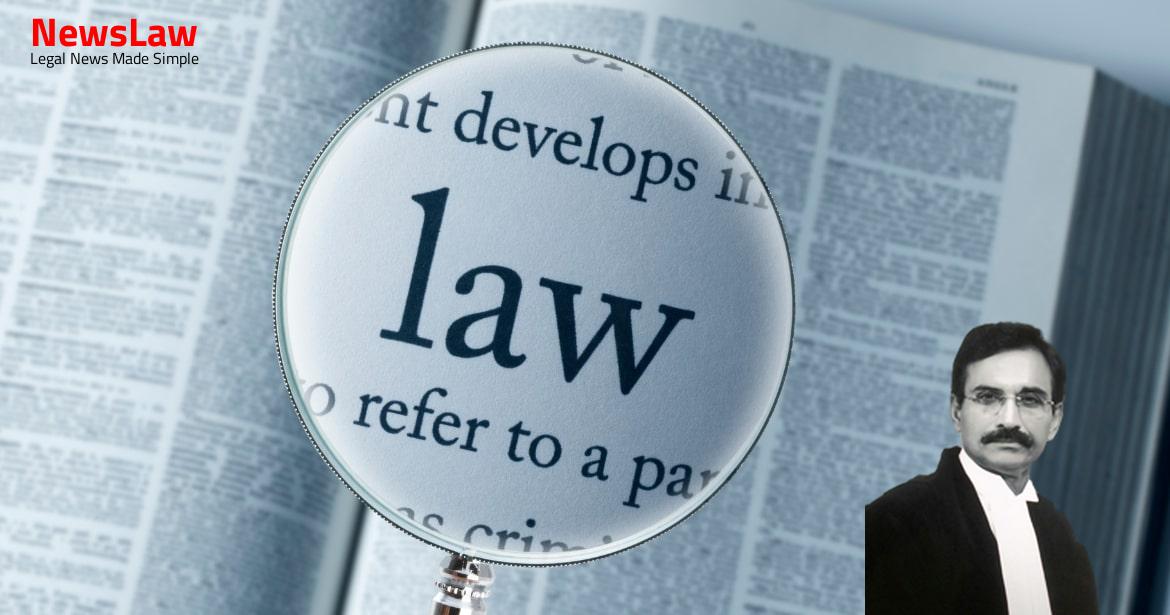The Trial Court in the said case while acquitting the appellant-accused from the charge under Section 3(2)(5) of the Scheduled Castes and Scheduled Tribes (Prevention of Atrocities) Act, 1989, (hereinafter referred to as the SC/ST Act), had 2 convicted him for the offence under Section 302 of IPC and sentenced him to undergo imprisonment for life and pay a fine of Rs.1,000/-, in default thereof, to further undergo Rigorous Imprisonment for one year.
Ganeshi Bai called her neighbours and took him to CIMS Bilaspur, as the health of Bisahu Singh was deteriorating. The learned Counsel for the Appellant placing heavy reliance on the decision of Sharad Birdhichand Sarda vs State of Maharashtra submitted that in case of the alleged death due to poisoning, the prosecution was required to prove that there was clear motive of the (1984) 4 SCC 116 4 accused to administer the poison to the deceased; that the accused had the poison in his possession and that he had the opportunity to administer the poison to the deceased. However, the learned Counsel for the Respondent State vehemently submitted that both the courts below having recorded the findings of conviction against the appellant for the offence under Section 302 and imposed the sentence of life imprisonment accordingly, this Court in exercise of the jurisdiction under Article 136 of the Constitution should not interfere with the same. (iii) Whether the prosecution had proved beyond reasonable doubt that the accused appellant had administered the poison in the liquor and made the deceased to drink it on 22.07.2003 i.e., on the previous date of his death? It cannot be gainsaid that the First Information Report in a criminal case is an extremely vital and valuable piece of evidence for the purpose of corroborating the oral evidence adduced during the course of the trial. Of course, the delay in lodging an FIR by itself cannot be regarded as the sufficient ground to draw an adverse inference against the prosecution case, nor could it be treated as fatal to the case of prosecution. The attack on prosecution cases on the ground of delay in lodging FIR has almost bogged down as a stereotyped redundancy in criminal cases. It is a recurring feature in most of the criminal cases that there would be some delay in furnishing the first information to the police.
Barring these two plus points for a promptly lodged FIR the demerits of the delayed FIR cannot operate as fatal to any prosecution case. [1994 Supp (1) SCC 185 : 1994 SCC (Cri) 348] ) In Tara Singh [1991 Supp (1) SCC 536 : 1991 SCC (Cri) 710] the Court made the following observations: (SCC p.
It is well settled that the delay in giving the FIR by itself cannot be a ground to doubt the prosecution case. The PW-9 Kedarnath Kaushik who was the ward boy in CIMS Hospital, Bilaspur had given the Merg Intimation (before the police station City Kotwali) and PW-10 Mangal Das who was posted as Head Constable in City Kotwali, Bilaspur had sent the dead body of the deceased-Bisahu Singh along with the memorandum to CIMS Hospital, Bilaspur for post-mortem on 24.06.2003.
P/9), and had sent the dead body for post-mortem along with the memorandum (Ex. It appears that the Viscera of the deceased was collected and sealed in two separate boxes by the PW-18 on 24.07.2003 and were sent for chemical examination to the Forensic Science Laboratory, Chhattisgarh, which received the same on 18.09.2003. From the afore-stated evidence on record, it is discernible that though the FIR was registered against the appellant on 03.11.2004 in respect of the incident which had taken place on 22.07.2003, a part of investigation had already started on the death of Bisahu Singh and on the Merg intimation no.43/03.
Thus, the entire delay as such could be attributed to the FSL, Raipur, which took almost one year in giving the report of Chemical examination of Viscera of the deceased. It is also true that when Bisahu Singh was admitted and treated in the hospital with the history of alleged administration of poison, and when he subsequently expired on the same day at 3.30 P.M., which required post-mortem to be carried out, the concerned SHO in the police station also could have registered the FIR instead of registering the case with Merg number. However, the explanation offered by the prosecution that the FIR was not registered as the cause of death was not stated by the Doctor who carried out the post-mortem and the report of Chemical examiner was awaited, seems to be reasonable and acceptable. State of Maharashtra (supra), which has been followed in catena of decisions, had observed that in the case of murder by poison, the prosecution must prove following four circumstances: – “(1) there is a clear motive for an accused to administer poison to the deceased, (2) that the deceased died of poison said to have been administered, (3) that the accused had the poison in his possession, (4) that he had an opportunity to administer the poison to the deceased.” 21. PW-2
Ganeshi Bai, wife of the deceased Bisahu Singh had stated that in the evening hours of 22.07.2003, her husband Bisahu had gone to the forest to bring woods, however he did not come back in the night. Sukwara Bai, PW-5 Rajesh Kumar, younger brother of the deceased also stated the same thing as stated by the PW-2 and others.
In the instant case, even if that so-called dying declaration of the deceased is believed, at the most it could be said that the deceased on 22.07.2003 had consumed liquor along with Hari Ram and others, and that in the third glass of liquor, Hari Ram had mixed some herb, and made the deceased to drink it.
After the receipt of the said report of the Chemical examiner, the investigating officer had failed to obtain any opinion either from the doctor who carried 18 out the post-mortem or from any other doctor about the actual cause of death of the deceased. Though it may be a matter of common knowledge that the Organophosphorous insecticides and Quinolphos are considered to be poisonous substances, nonetheless the Court would be loathe in imputing personal knowledge and conclude that such poisonous substances found in the Viscera of the deceased was the cause of death of the deceased, more so when the said opinion of Chemical analyzer was received after more than one year of sending the Viscera of the deceased to the FSL, Raipur.
Case Title: HARIPRASAD @ KISHAN SAHU Vs. THE STATE OF CHHATTISGARH
Case Number: Crl.A. No.-001182-001182 / 2012



